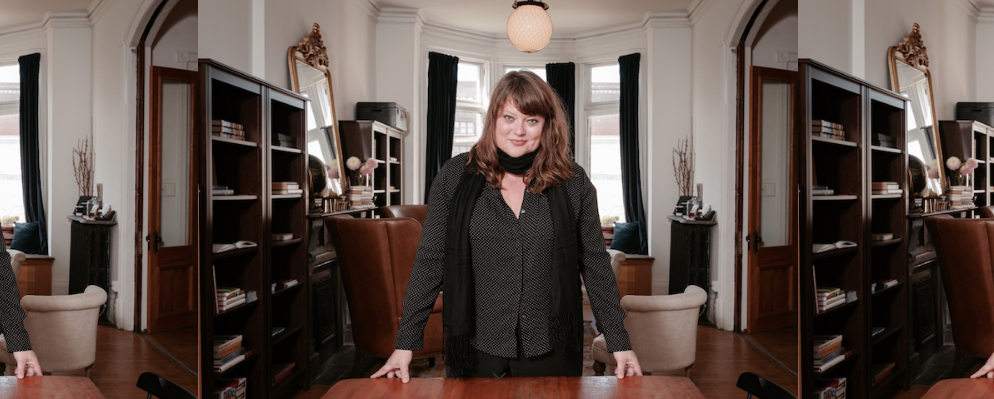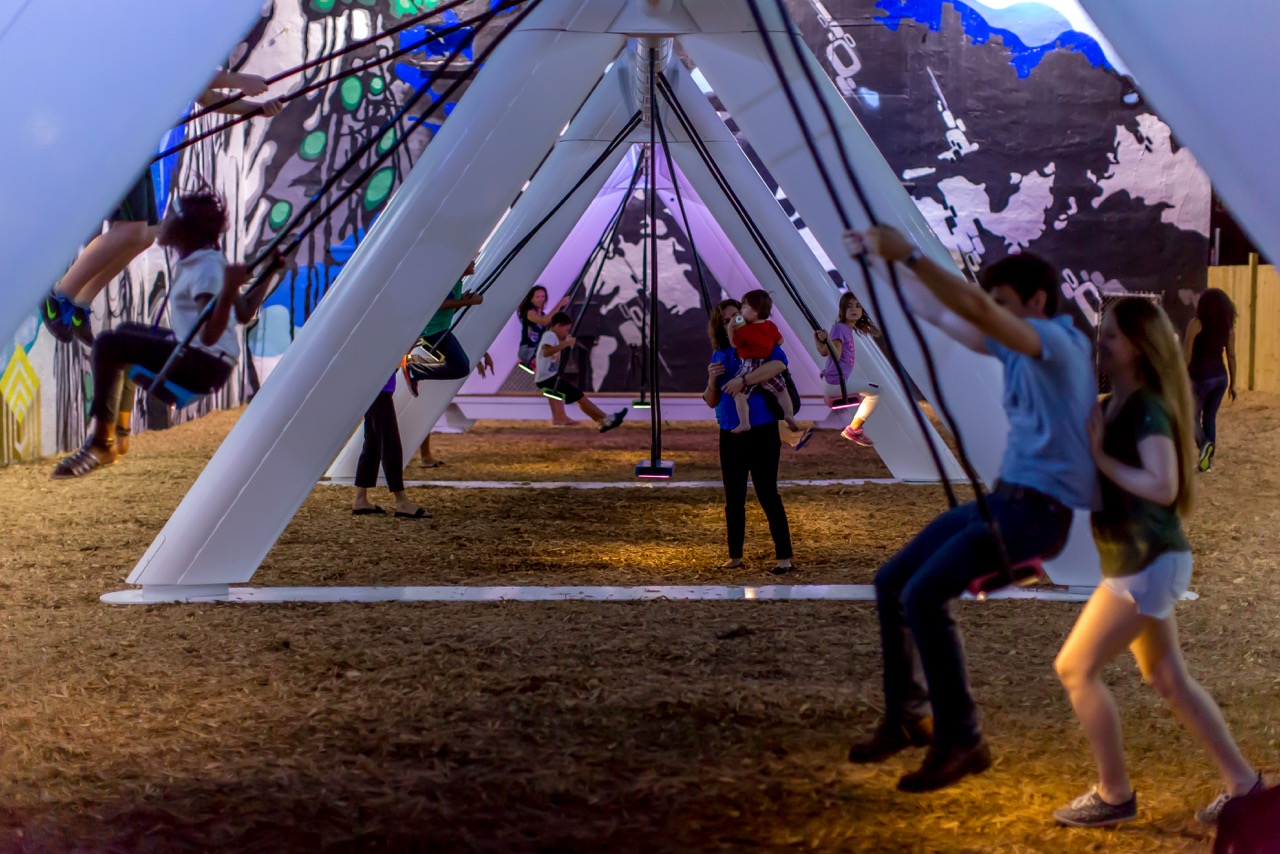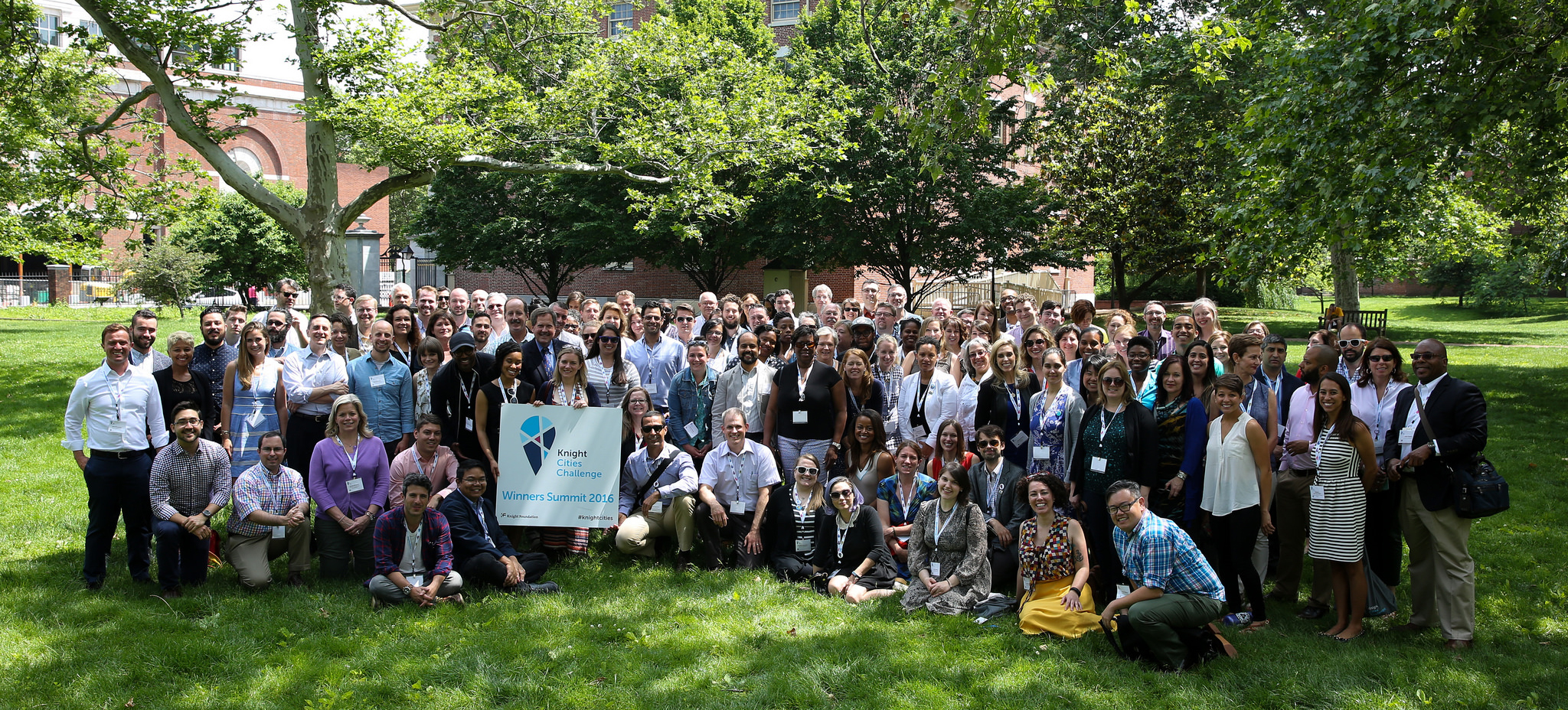
Exploring the art of conversation at the Urban Consulate
What is the art of conversation?
A salon is a social gathering to exchange ideas, a celebration of the art of conversation dating back to 16th century Italy, though most closely associated with the literary and philosophical movements of France in the 17th and 18th centuries, when it became the engine of the Enlightenment.
The concept of the salon, a social space of philosophizing and intellectual debate, has all but vanished in this modern era. This kind of space for public gatherings of intellectually rigorous, curious people no longer exists in the same form today.
There are coffeehouses, sure – places where most people bury their heads in their MacBooks with their headphones firmly secured in their ears, in close proximity to other people but certainly not engaged with them. Co-working spaces and business incubators are very much in vogue right now, and certainly promote a level of networking among similarly-minded, similarly-educated, similarly-careered people.
But “networking” is a far cry from an idea exchange devoid of a professional agenda where one seeks to hear different perspectives. A space where the exchange of ideas among friends and strangers is cultivated and promoted – where the exchange itself is the end goal – is nonexistent.
This was the kind of space Claire Nelson had in mind when she first envisioned her concept of the Urban Consulate.
“From doing work in Detroit through Urban Innovation Exchange, Model D, and other projects in the city, I noticed a couple of things: if you’re someone who loves cities, if you’re urban-minded and an urban enthusiast, chances are you are probably passionate about the place you live and are engaged locally,” Nelson says. “But also, issues you might be working on locally might be the same as issues in other cities. When you’re a local person and have your head down doing local work, you might not have the opportunity to pick your head up and look at other places and see how they solve other urban problems.”
Change & The City – Episode 1. A video by the Urban Consulate.
People who choose to live in cities and identify in some way as “urbanists” tend to share some values, Nelson points out. “On a very basic level there is a curiosity and eagerness to connect to other people. You like diversity, you like exploring and having new experiences. If we promote places that are sustainable and equitable we can be more powerful.”
The Urban Consulate is a multi-city network of salon parlors for city-dwellers and travelers seeking an exchange of ideas. Launched in April 2016, the Urban Consulate is described as an “embassy for cities,” seeking to connect urban-curious people, their ideas and best practices shaping urban life across cities – specifically Detroit, Philadelphia, and New Orleans.
The original idea was to have cross-pollination between the three cities and foster peer-to-peer connections. “You might be afforded opportunities to attend conferences or apply for fellowships or travel study opportunities if you’re in government or work for a nonprofit, but if you’re an artist or social entrepreneur or doing your own thing locally without a lot of budget or resources, you might not have opportunity to travel the way others do,” Nelson explains.
She says they are still learning how to best facilitate that kind of exchange since launching the first Consulate in April. Over the last several months, the Consulate cities have seen more exchanging between local residents from a multitude of different backgrounds who might not have otherwise connected as well as travelers who find the salons to be incredible resources to learn more about these cities from the perspectives of those who actually live in them.
“Since we launched there have been a lot of local concerns over gentrification and new people coming in,” Nelson says. “A lot of the conversations are locally-oriented, making sure people talk across neighborhoods. There is a lot of need for spaces to have those conversations. Connecting people within cities is as important as connecting people across cities.”
Nelson herself lived in Detroit for over a decade, though she now resides in New Orleans and splits her time between the three Consulate cities.
Philadelphia and New Orleans both have temporary pop-up spaces for salon events called “city lobbies,” but it is Detroit that is the primary focus for the Consulate’s pilot launch, with a permanent space in a historic old house in the city’s thriving Midtown neighborhood that hosts events each week.
Change & The City – Episode 2. A video by the Urban Consulate.
Detroit is a city in the midst of a massive transformation that has been underway for years – five, 10, 20 years even, depending on who you ask. For as long as there has been a gloom and doom narrative hanging over Detroit, there have been people working actively to change that narrative. Nelson is one of those people. From the early-2000s on, you would be hard-pressed to find a person or project in the city of Detroit that Nelson hasn’t been connected to in some way, if not outright founded.
She co-founded Open City in 2007, which was the first public forum for current and aspiring business owners in the city to exchange ideas and information about doing business in Detroit. There seem to be countless such programs that exist in Detroit now, including the Build Institute – which was formerly known as D:hive, for which Nelson previously served on the advisory council. And, in a true coming full circle, Open City is now hosted by Build.
Nelson also helped form a group called Detroit Synergy in 2002, which for many years was an entry point for long-time residents and newcomers alike to get involved in the city through social events and volunteer service opportunities that worked to promote a positive image of Detroit.
She opened a home goods and design retail store called the Bureau of Urban Living at a time when very few entrepreneurs were opening new retail stores in the city, then encouraged several of her friends to do the same.
She co-founded Declare Detroit, a local political advocacy group. She founded Mind the Gap, a public design ideas competition for “in-between” spaces (it should be noted her background is in architecture, design, and urbanism). She served as a board member ofHatch Detroit, a small business grantmaking contest that has helped launched numerous new businesses in Detroit since 2011.
She was also previously the publisher of Detroit-centric news media organization Model D, and remains the director of Urban Innovation Exchange, a program that launched as a three-year pilot in Detroit and has since expanded nationally, highlighting people changing cities all over the country.
Through all of her many involvements over the years, Nelson noticed a pattern repeating itself among Detroit’s most passionate doers: “I would see people in Detroit who were super passionate about Detroit get stuck,” she says. “They didn’t know how to take what they were doing to the next level, how look up and out.”
Furthermore, she notes, the problems that cities face are pretty universal: the public school systems are terrible; gentrification is real and is further exacerbating issues of racial and economic inequality; there is a desperate need for more comprehensive transit and green infrastructure planning. These are Detroit problems, but they are also problems in New Orleans and Philadelphia (and Baltimore and Chicago and Cleveland and so on).
Change & The City – Episode 3. A video by the Urban Consulate.
“It started with Detroit, but people who love cities and engage in cities have a lot in common, and if we can help them with programming in these parlor spaces, that can be an opportunity to connect. Every city is dealing with these same issues; it’s okay to stop and talk about them. This is an opportunity to share the things they’ve learned – best practices across cities and neighborhoods.”
The programming at the Urban Consulate in Detroit includes weekly parlor talks on Thursday evenings, Friday afternoon teas, smaller focus groups, an urbanism book club, “deep dive” dinners, a women’s club, co-working and creative industry networking events, and more. It attracts locals but also many out-of-town guests, who find in it a place not to get tourism information but to have real conversations about the city.
Wayne Ramocan, Alumni Manager at Build Institute and advisor/collaborator for the Urban Consulate, says, “People see this as a way to understand what is going on in Detroit and we have seen that time and time again. Almost every single Thursday we have people who aren’t from Detroit – people from Germany, France, London, Sweden, and also from the suburbs and greater region. They’re new here or just visiting and we’re having these robust conversations they’re using for research.”
“Our programming has been reflective of the Detroit population more than anything else I’ve done,” Nelson says. “It makes me so happy when Black artists and entrepreneurs say they feel like this is a safe space. I feel like the conversations happening here need to be heard by more people around the city. Our guests are really interested in having philosophical conversations about the future of the city and translating talk into action.”
In a city with a majority Black population where the recent flurry of development has been majority White: that is something people need to talk about. When White entrepreneurs receive disproportionately more media coverage and resources than their Black counterparts: that is something people need to talk about. In a city where starry-eyed newcomers drawn by the recently romanticized “blank slate” Detroit narrative are moving in and immediately looking to change the character of the community with little regard for the actual members of the community: that is something people need to talk about. When development and investment is exploding in the “downtown core” neighborhoods but the remaining 130+ square miles of the city still suffers from a lack of resources and long-time divestment: that is something people need to talk about.
“The world has changed,” says Nelson. “There are always new people who arrive to a place who don’t know the history or understand the pain and frustration that makes people so averse to new things in their city. I feel like our space is a slower space to stop and reflect more, where we can ask, ‘Hey, do we want all these changes, and if not, how do we change it?’”
She says she is also very interested in thinking about what diplomacy means, and diplomacy versus dissent. “When are times when you want to be a diplomat and try to collaborate to solve a problem, and when are times to yell and shout and raise your hands a bit?” she poses. “I would like to think of all of us as diplomats first: let’s welcome new people to the city, let’s make sure they’re meeting the right people, let’s be good ambassadors and delegates. But there are also moments you need to get pissed off.”
“It’s almost always a very honest conversation,” says Chase Cantrell, Founder and Executive Director of Building Community Value. He first discovered the Consulate while attending an event his friend Devita Davison was speaking at. He has been a regular in weekly attendance ever since, and has now began hosting events.
“I attend a lot of business meetings and conferences, and usually people are very PC,” he says. “They try to frame things in couched terms. Conversations at the Consulate have been very raw and very open and very honest. Sometimes the conversation gets heated between the speaker and the audience, but they’re the kinds of conversations I have with my friends – the truth about what we feel is happening in Detroit.”
During an election cycle that has been particularly contentious and an emotionally intense summer with a seemingly endless succession of shootings and growing hostilities on either side of the Black Lives Matter movement, in some ways it feels like we’re all just spinning our wheels waiting for the world to tear itself apart. It is during times such as this that we need a place like the Urban Consulate more than ever.
“The day after November 8, whatever the results are, we have a lot of hearing to do,” Nelson says. “Providing a forum for that is really important. There is so much vitriol and venom online –this is the antidote to that. We try to find a common ground and explore our differences of opinion. I feel like every city in the country should have space for this. We really just value the fact of having a conversation and a place to talk. I hope this is place where people can talk through these things.”
What is the value, the art, of a good conversation? One that leaves people walking out of the room with a new way of thinking about things.
“I can learn from every conversation I have,” says Nelson.
R
-
Community Impact / Article
-
Community Impact / Press Release
-
Community Impact / Article
Recent Content
-
Community Impactarticle ·
-
Community Impactarticle ·
-
Community Impactarticle ·




